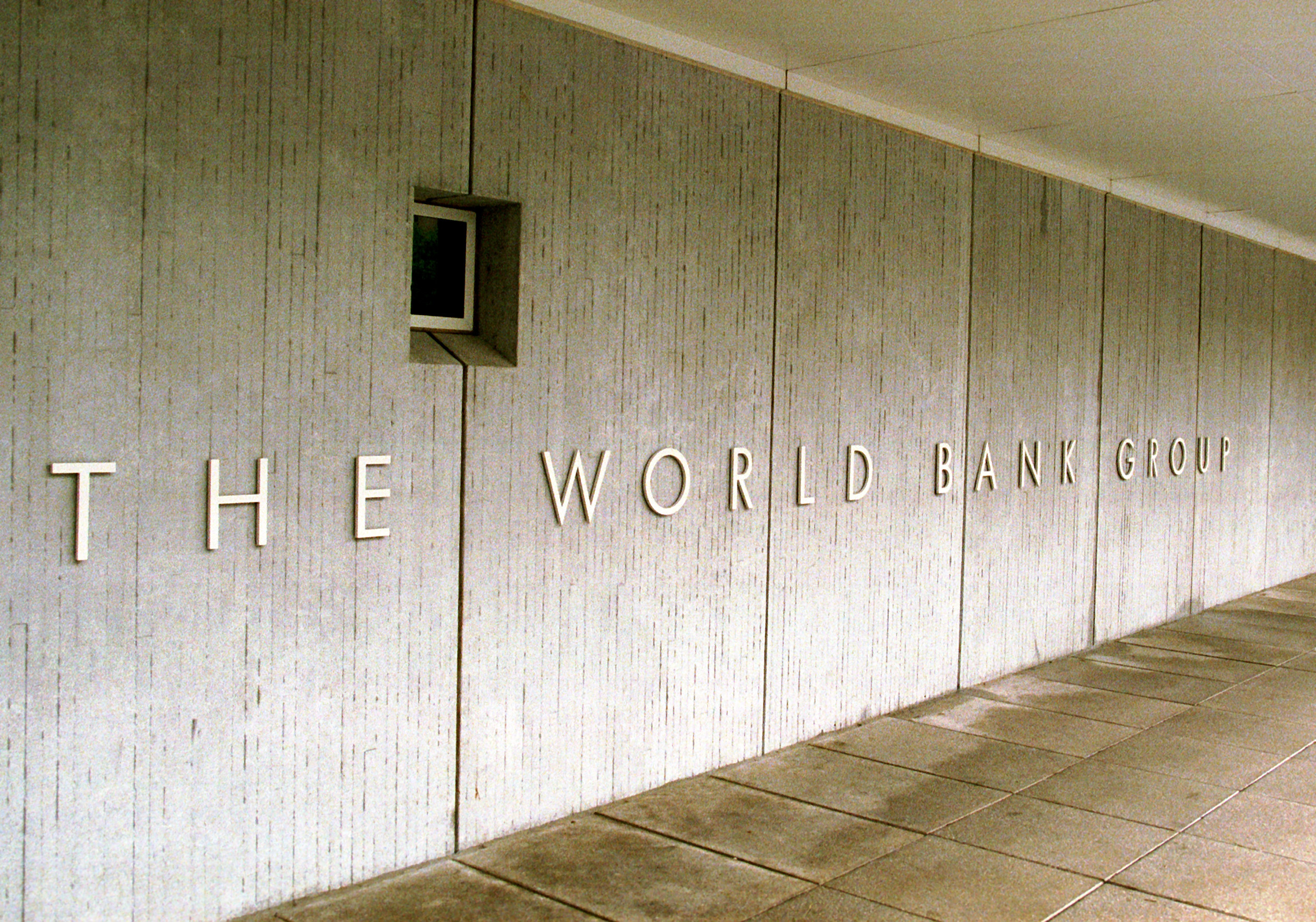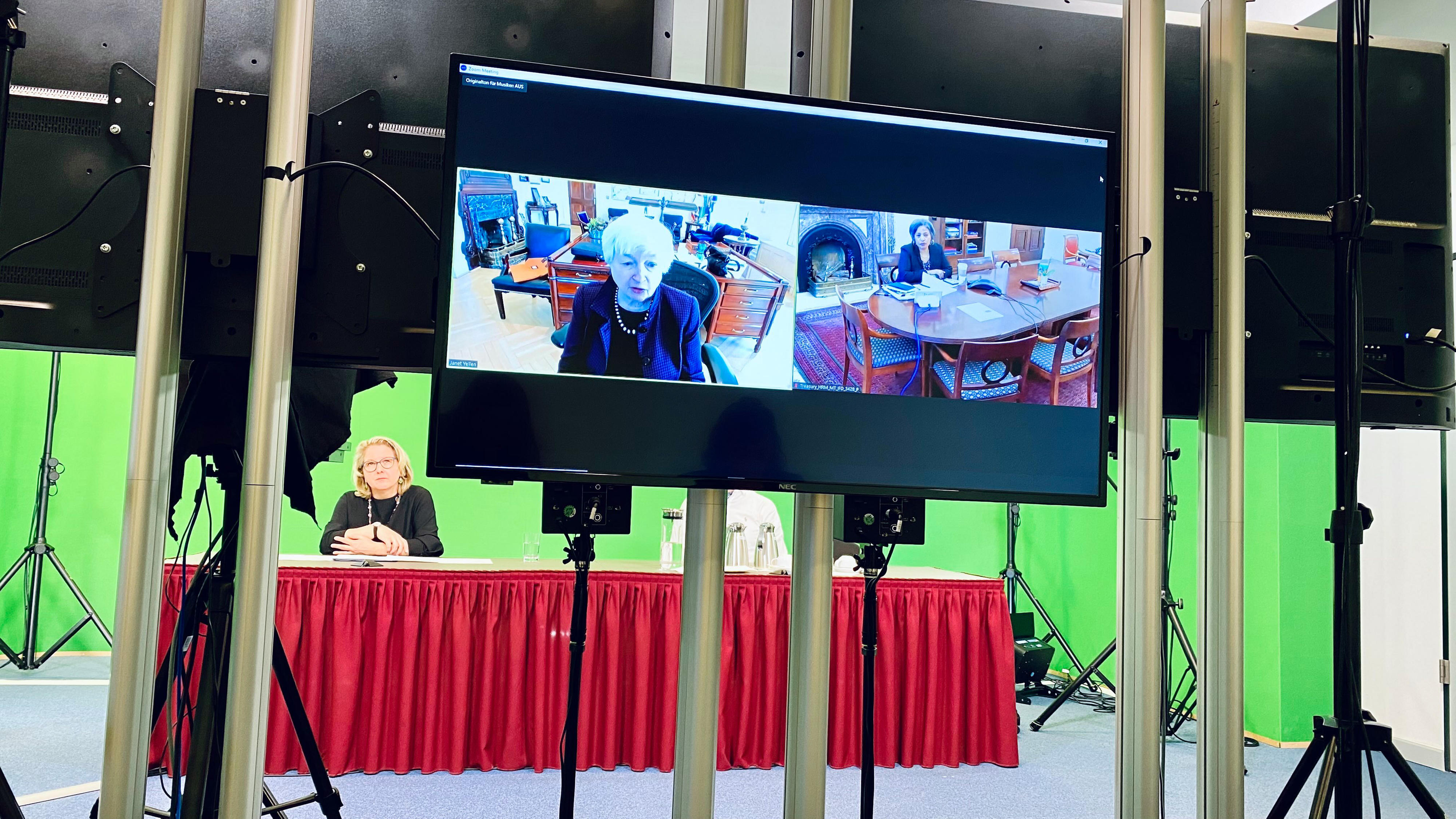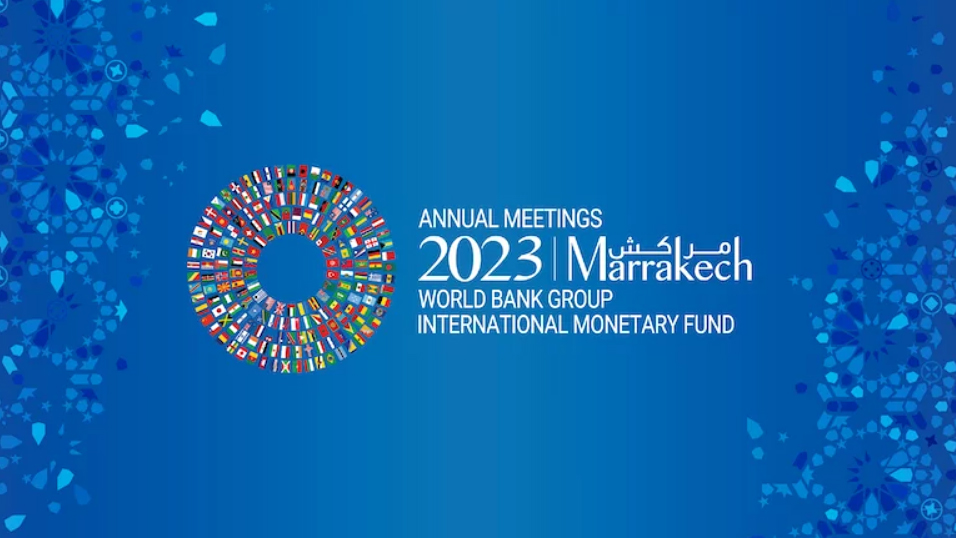The “World Bank Group” inscription on the main building of the World Bank in Washington
Copyright© Thomas Koehler/photothek.net
World Bank Group reform
No country will be able to meet the global challenges of our time on its own. For the World Bank, this means that it has a special responsibility – and an obligation to act. It is the biggest development finance institution worldwide and an engine for sustainable development, and it can support countries effectively in mobilising urgently needed domestic resources and the private sector. However, today's challenges are different from those 30 or 40 years ago. So the World Bank, too, needs to evolve continuously.
This is why, at the Annual Meeting in October 2022, the then German Development Minister Svenja Schulze and other World Bank Governors called on the World Bank to carry out ambitious reforms, the aim being to have the World Bank provide strong support for a just social-ecological transformation and lead the fight against hunger, poverty and inequality on a liveable planet. In order to create a basis for this, the Bank needs to effectively tackle global challenges such as climate change, biodiversity loss, pandemics, and violent conflict. These actions are vital prerequisites for sustainable development.
The World Bank Group presented its vision for changing the institution in the form of an “Evolution Roadmap (External link)” in December 2022. World Bank Group shareholders and management have since worked hard on the Bank's reform and evolution.
Cornerstones of reform adopted at Marrakech Annual Meeting
The World Bank's Governors responded to these demands by adopting a common basis for a trailblazing reform at the Marrakech meeting on 12 October 2023. The reform will address all fields of work of the World Bank and its business model, starting from redefining the Bank's vision and mission, which was broadened to include the importance of a liveable planet.
On this basis, a revised Corporate Scorecard is to be introduced, defining a set of goals that serve as guidance for the World Bank's operations and are mainstreamed across all areas of its work. The fundamental revision of the Corporate Scorecard to align it with the new mandate is to be completed by the end of 2024. In the future, the Scorecard will apply to all branches of the World Bank Group. Germany wants the revised Scorecard to give appropriate attention to aspects such as sustainable growth within planetary boundaries, climate action and biodiversity conservation, and the reduction of inequality.
The Bank will also improve its internal procedures and the advice it provides to its clients: analyses, strategies and instruments are to take better and more structured account of cross-border impacts.
A basis has also been put in place for the more targeted provision of financial and other incentives to encourage the protection of global public goods. Investment incentives are to be designed to ensure that investments will go where they deliver maximum impact. Germany is calling for providing special incentives for investments that serve, in addition to national development interests, also the global common good.
The reform is also putting a strong focus on the key role of the private sector and on the mobilisation of domestic resources for transformation and development. In order to activate private-sector involvement, Germany is calling for a holistic approach that puts an emphasis on regulatory approaches, efforts to strengthen local financial markets, and the provision of appropriate public infrastructure.
Financing
At the end of the day, the World Bank will need to grow financially to meet these challenges. That is why Germany will be the first country to provide a total of 305 million euros in hybrid capital for a reformed World Bank. This will mean that, over the next ten years, an extra amount of around 2.6 billion US dollars can be mobilised to provide additional incentives for countries to invest in cross-border challenges.
The agreed reforms now need to be delivered quickly in order to make a tangible difference in client countries, so that processes towards a sustainable, socially and environmentally sound transformation can be launched and effectively supported there.
However, in order to be able to tackle the huge global challenges effectively, the international community will need to engage in reforms that go beyond the World Bank. The BMZ is calling for all multilateral development banks to function better as a system in the future and better coordinate and harmonise their operations.
As at: 12/10/2023


